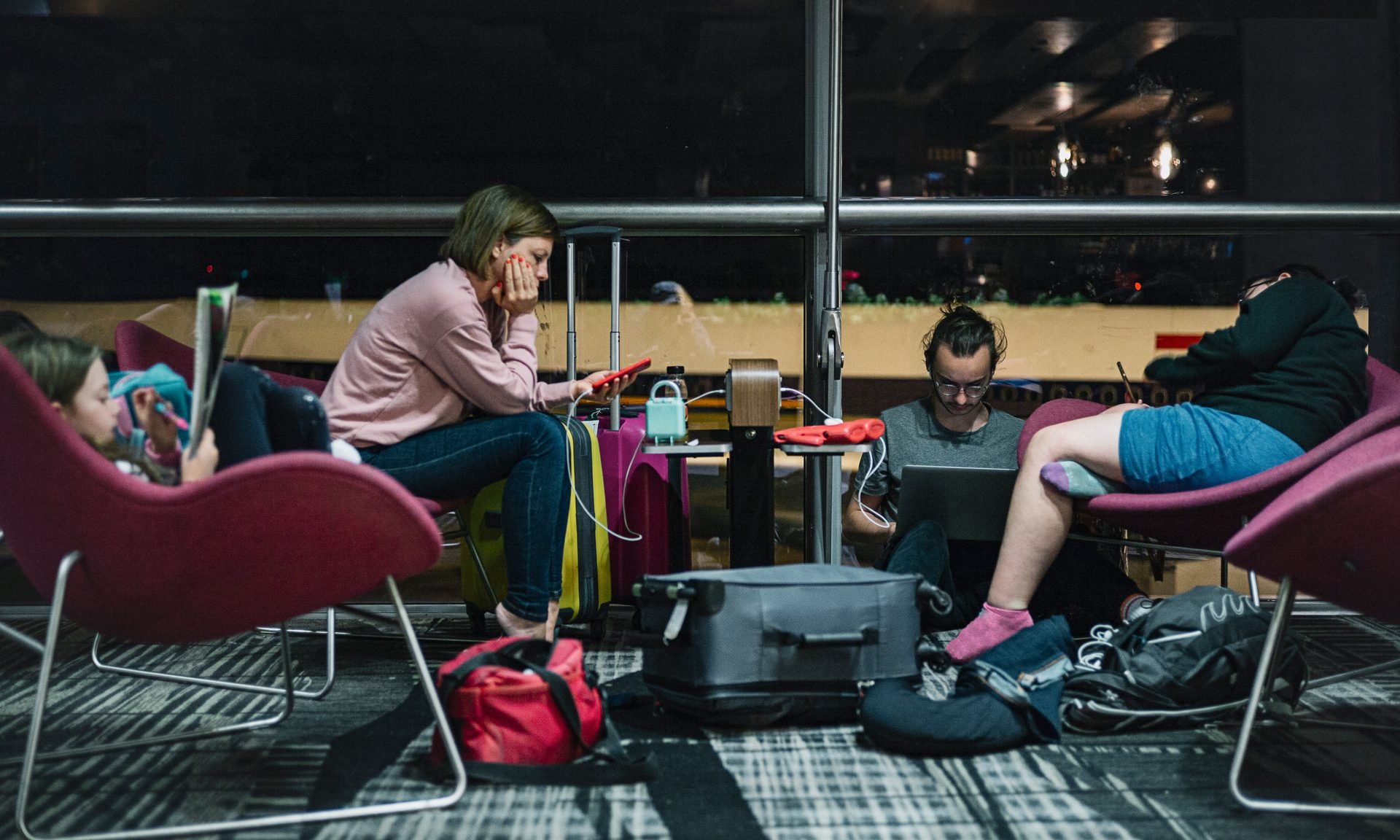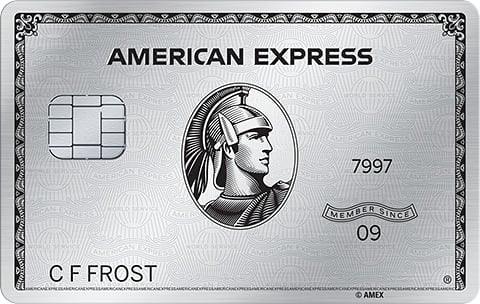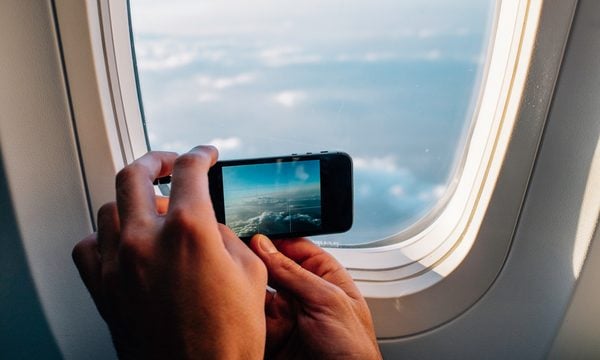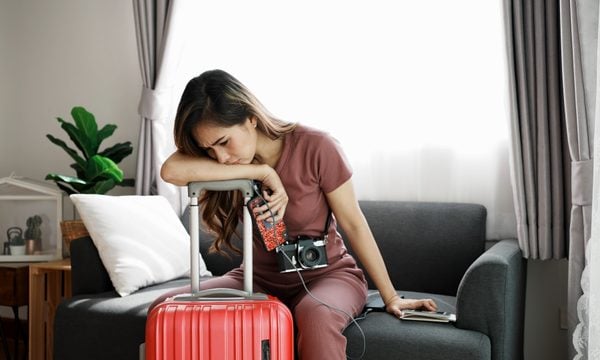Flight Delay and Cancellation Compensation: What to Know
A 2024 federal rule streamlines refunds for certain delays, but additional compensation is up to each airline.

Many or all of the products on this page are from partners who compensate us when you click to or take an action on their website, but this does not influence our evaluations or ratings. Our opinions are our own.
Flight delays and cancellations are frustrating, and until recently, it could be an arduous process to receive compensation or a cash refund for travel disruptions. But a federal rule enacted in 2024 makes it easier.
Here’s what to know about flight delay and cancellation compensation.
Get the 'Cheat Codes' to Cheaper Travel
Unlocking the secret to saving a ton on travel is easier than you think. 📤 Our free newsletter shows you how in 5 min. or less.

When can you get a cash refund?
If your flight is canceled or "significantly changed," you’ll generally have the option to either rebook through the airline or receive a refund. To qualify for a cash refund, you must decline any alternative transportation or travel credits offered by the airline, such as rebooking on another flight. This applies to all passengers, including those traveling on a nonrefundable ticket. Depending on the airline, you might receive cash or travel credits even if you do accept the rebooking (more on that in the next section).
You’ll qualify for a cash refund for your airfare and ancillary service fees under the following conditions:
- Your flight is canceled or significantly changed: Significant changes include:
- Departure or arrival times that are more than three hours domestically and six hours internationally;
- Airport changes, including connection changes to a different airport;
- An increase in the number of connections;
- Downgrades to a lower class of service, for example from business class to coach;
- Aircraft changes that are less accessible or accommodating to a disabled person.
- You have significantly delayed baggage: Checked bag fees will be reimbursed if a bag is not delivered within 12 hours of a domestic flight arriving at the gate, or 15 to 30 hours of an international flight arriving at the gate (depending on the length of the flight). The passenger must also file a mishandled baggage report with the airline.
- You paid for extra services not provided: Fees for extra services — such as Wi-Fi, seat selection or inflight entertainment — will be reimbursed if the airline fails to provide the service.
Cash refunds must be “automatic and prompt” and no longer need to be explicitly requested. Refunds must be processed by the airline within seven days for credit card purchases and 20 days for other payment methods (such as award travel with airline miles). Airlines can also no longer substitute vouchers, travel credit or other forms of compensation unless explicitly approved by the passenger.

Rebooking? You might be eligible for additional compensation
Airlines are committed to rebooking passengers at no additional cost if they experience a controllable change or cancellation. It is up to the passenger to either accept that rebooking or receive a refund.
However, it is up to the discretion of each airline to provide additional amenities or compensation, such as meals and hotel accommodations, to those who rebook. These conditions are made public by every airline in their customer service plan and summarized on the U.S. Department of Transportation’s website.
Dig deeper into these protections by tuning into NerdWallet's Smart Travel podcast. This episode talks about U.S. consumer protections for air travelers.
Every airline except Frontier is committed to covering hotel accommodations (and transportation to that hotel) for any passenger affected by a controllable overnight cancellation. Additionally, Alaska, Hawaiian, JetBlue and Southwest provide a credit or travel voucher when a cancellation results in a passenger waiting for three hours or more from the scheduled departure time (the amount of additional compensation will depend on the airline).
A summary of select commitments from each major airline is shown below.
| Airline | Rebook on partner airline or another airline with which it has an agreement at no additional cost | Meal or meal cash/voucher when cancellation results in passenger waiting three or more hours for a new flight | Complimentary hotel stay for any passenger affected by an overnight cancellation | Credit/travel voucher when cancellation results in passenger waiting for three hours or more from the scheduled departure time |
|---|---|---|---|---|
| Alaska Airlines | Yes. | Yes. | Yes. | Yes. |
| Allegiant Air | No. | No. | Yes. | No. |
| American Airlines | Yes. | Yes. | Yes. | No. |
| Delta Air Lines | Yes. | Yes. | Yes. | No. |
| Frontier Airlines | No. | Yes. | No. | No. |
| Hawaiian Airlines | Yes. | Yes. | Yes. | Yes. |
| JetBlue Airways | Yes. | Yes. | Yes. | Yes. |
| Southwest Airlines | No. | Yes. | Yes. | Yes. |
| Spirit Airlines | No. | Yes. | No. | No. |
| United Airlines | Yes. | Yes. | Yes. | No. |
» Learn more: How much is travel insurance?
NerdWallet Smart Travel podcast co-host shared in an episode how she managed to turn a cancelled flight into a free trip to Denver, including hotel room, $200 in United credits and $45 worth of Starbucks giftcards. Listen in:
How to find the reason for your flight delay or cancellation
To determine if you’re due additional compensation for a delay or cancellation beyond rebooking, you’ll need to figure out the reason for the trip interruption. The DOT considers four main types of delays as controllable, including maintenance delays, crew scheduling problems, fuel or baggage loading issues and cabin cleaning delays.
Some airlines do an excellent job of communicating the reason for a trip interruption. United Airlines spells out the reason for a delay at the top of your flight details in the United app. If you're flying on another airline, you may need to use a service like ExpertFlyer to see the official reason listed for the flight delay or cancellation. You can also ask a flight attendant or gate agent the reason for the interruption, but having physical documentation, such as a screenshot, can be beneficial if you believe you’re due additional compensation for a trip interruption.
» Learn more: How to avoid flight delays
When won’t you receive additional compensation?
Some reasons for flight delays or cancellations are considered out of the airline's control. For example, airlines generally aren't going to provide compensation for meals or overnight accommodations if inclement weather causes the cancellation of your flight. Other forms of “uncontrollable” delays and cancellations include air traffic delays, safety- or security-related events and infrastructure or utility problems.
Some airlines specifically list other delay reasons that are considered outside the airline's control, such as "passenger illness" (Alaska Airlines), "Federal Aviation Administration-required crew duty limitations" (Southwest Airlines) and "acts of God" (JetBlue Airways). Beware that different airlines may interpret the same situation differently. You can find out the exact terms in the airline's customer service plan or contract of carriage.
» Learn more: How to book a flight that (likely) won’t get canceled
Ways to protect yourself from delays and cancellations
If you're on a flight that was canceled due to weather or another reason outside the airline's control, your credit card perks may save the day. Several travel-related credit cards provide trip delay insurance that covers these types of delays. Just make sure to keep your receipts and note that your credit card's benefits administrator may request a statement from the airline explaining the reason for the delay.
Top cards with travel insurance
Annual fee
- $95
- $795
- $895
- $95
Travel protections (not a comprehensive list)
• Trip delay: Up to $500 per ticket for delays more than 12 hours.
• Trip cancellation: Up to $10,000 per person and $20,000 per trip. Maximum benefit of $40,000 per 12-month period.
• Trip interruption: Up to $10,000 per person and $20,000 per trip. Maximum benefit of $40,000 per 12-month period.
• Baggage delay: Up to $100 per day for five days.
• Lost luggage: Up to $3,000 per passenger.
• Trip delay: Up to $500 per ticket for delays more than 6 hours.
• Trip cancellation: Up to $10,000 per person and $20,000 per trip. Maximum benefit of $40,000 per 12-month period.
• Trip interruption: Up to $10,000 per person and $20,000 per trip. Maximum benefit of $40,000 per 12-month period.
• Baggage delay: Up to $100 per day for five days.
• Lost luggage: Up to $3,000 per passenger.
• Trip delay: Up to $500 per trip for delays more than 6 hours.
• Trip cancellation: Up to $10,000 per trip. Maximum benefit of $20,000 per 12-month period.
• Trip interruption: Up to $10,000 per trip. Maximum benefit of $20,000 per 12-month period.
• Lost luggage: Up to $3,000 per passenger.
Terms apply.
• Trip delay: Up to $500 per ticket for delays more than 12 hours.
• Trip cancellation: Up to $10,000 per trip. Maximum benefit of $20,000 per 12-month period.
• Trip interruption: Up to $10,000 per trip. Maximum benefit of $20,000 per 12-month period.
• Baggage delay: Up to $100 per day for five days.
• Lost luggage: Up to $3,000 per passenger.
Learn more
Alternatively, you might want to take out a travel insurance policy that will cover you in the case of a wide variety of delays — such as bad weather, airline maintenance or personal medical issues. Some travel insurance policies will even let you cancel a trip for any reason, meaning you're covered no matter why your flight was delayed or canceled.
Insurance Benefit: Trip Cancellation and Interruption Insurance
- The maximum benefit amount for Trip Cancellation and Interruption Insurance is $10,000 per Covered Trip and $20,000 per Eligible Card per 12 consecutive month period.
- Eligibility and Benefit level varies by Card. Terms, Conditions and Limitations Apply.
- Please visit americanexpress.com/benefitsguide for more details.
- Underwritten by New Hampshire Insurance Company, an AIG Company.
Insurance Benefit: Baggage Insurance Plan
- Baggage Insurance Plan coverage can be in effect for Covered Persons for eligible lost, damaged, or stolen Baggage during their travel on a Common Carrier Vehicle (e.g., plane, train, ship, or bus) when the Entire Fare for a ticket for the trip (one-way or round-trip) is charged to an Eligible Card. Coverage can be provided for up to $2,000 for checked Baggage and up to a combined maximum of $3,000 for checked and carry-on Baggage, in excess of coverage provided by the Common Carrier. The coverage is also subject to a $3,000 aggregate limit per Covered Trip. For New York State residents, there is a $2,000 per bag/suitcase limit for each Covered Person with a $10,000 aggregate maximum for all Covered Persons per Covered Trip.
- Eligibility and Benefit level varies by Card. Terms, Conditions and Limitations Apply.
- Please visit americanexpress.com/benefitsguide for more details.
- Underwritten by AMEX Assurance Company.
How to maximize your rewards
You want a travel credit card that prioritizes what’s important to you. Here are some of the best travel credit cards of 2026:
- Flexibility, point transfers and a large bonus: Chase Sapphire Preferred® Card
- No annual fee: Wells Fargo Autograph® Card
- Flat-rate travel rewards: Capital One Venture Rewards Credit Card
- Bonus travel rewards and high-end perks: Chase Sapphire Reserve®
- Luxury perks: American Express Platinum Card®
- Business travelers: Ink Business Preferred® Credit Card
Article sources
NerdWallet writers are subject matter authorities who use primary,
trustworthy sources to inform their work, including peer-reviewed
studies, government websites, academic research and interviews with
industry experts. All content is fact-checked for accuracy, timeliness
and relevance. You can learn more about NerdWallet's high
standards for journalism by reading our
editorial guidelines.
- 1. U.S. Department of Transportation. Airline Cancellation and Delay Dashboard. Accessed Feb 3, 2025.
Limited Time Only: Earn $1,000 Toward Travel!
Capital One Venture Rewards Credit Card 
Travel

For a limited time, the
Capital One Venture Rewards Credit Card is offering new cardholders an especially rich bonus: Enjoy $250 to use on Capital One Travel in your first cardholder year, plus earn 75,000 bonus miles once you spend $4,000 on purchases within the first 3 months from account opening - that’s equal to $1,000 in travel!
More like this
Related articles












